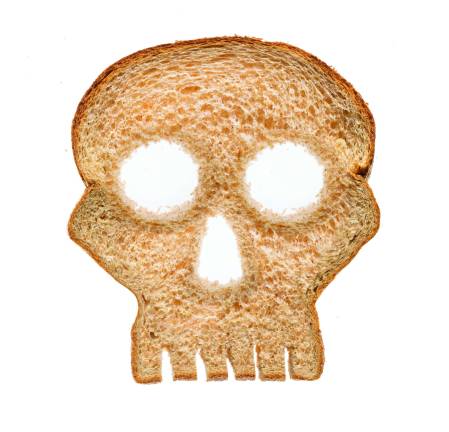Gluten: Health risk or diet fad?

Listen to what your body is telling you
As many as 18 million Americans may have non-celiac gluten sensitivity, according to the National Foundation for Celiac Awareness. That is a staggering number. Wondering who should consider whether or not gluten could be affecting their well-being? Anyone who has been sick, but no matter what they seem to do, can’t get better.
As someone who has been navigating autoimmune disease for 20-plus years, I have learned that gluten sensitivity can show its face in many ways. Some present with gastrointestinal symptoms, others with neurological symptoms. Gluten sensitivity has been linked to numerous autoimmune diseases and symptoms such as numbness and tingling, migraines, recurrent anemias, joint pain, and fatigue, to name a few. Some health concerns that have been linked to gluten sensitivity are rheumatoid arthritis, Sjogren’s syndrome, lymphoma, Hashimoto’s disease, and epilepsy.
Anyone with an autoimmune disease should be properly screened for possible gluten sensitivity as well as other food sensitivities. If someone with a gluten sensitivity continues to eat gluten, symptoms/disease will generally manifest at their weakest link and it can affect just about any tissue of the body.
Having a chronic illness is a sign that something is wrong. It is important to remember that the whole idea around going gluten-free is to return to a state of health. In my experience, often times, the gluten sensitive person may do best going completely grain free so that the healing process can begin. Going gluten-free is not about substituting one type of junk food with another that is labeled “gluten-free.” If the body is breaking down, it is trying to tell you something. The body needs proper nourishment and fresh whole foods, which means more home cooking and less eating out of a box. An entire lifestyle change must happen in order to truly heal. In addition to the omission of grain/gluten, we must remove the chemical-filled foods that contain unhealthy ingredients and 24 letter words that we can’t pronounce and the body cannot recognize. Trying to correct a serious health concern with the same diet and lifestyle habits as before is setting yourself up for failure.
Trish Cardone is a certified nutritionist, certified holistic health coach, and certified gluten practitioner based in eastern Pennsylvania. APassionforHealthyLiving.com.
This diet fad helps ‘big food’ more than you
Gluten is a protein found in wheat, barley and rye, and in their products, like traditional bread, pasta, cereals, and cakes. It is now commonplace to test out a gluten-free diet to treat any ailment: stomachaches, headaches, depression, etc. But most Americans give little thought to the health effects of cutting out this major source of calories and nutrition.
Those with celiac disease, an autoimmune disorder that affects about one percent of the population, need to avoid gluten. They experience an immune response that damages their digestive system when they eat gluten-containing foods. People with a gluten sensitivity may also need to avoid gluten. Gluten sensitivity is characterized by symptoms similar to those of celiac disease, but lack the autoimmune response. Though we still don’t know exactly why, patients often find relief from their unpleasant symptoms once they remove gluten from their diet. Both diagnoses should be given by a doctor, with thorough follow-up after a gluten-free diet initiation to monitor symptoms and necessity.
Apart from those mentioned above, people trying out a gluten-free diet likely feel that they are going to eat healthier by cutting out gluten. At first this may work – perhaps they can stick with brown rice, grilled chicken and broccoli for a few weeks. Fast forward a month or two and there are now gluten-free versions of favorite snack foods filling the grocery cart. Big food companies have sensed the change in market and responded (refer to half of every aisle in Whole Foods).
Upon further inspection, the gluten has been replaced with other refined, unenriched grains and starches. These gluten-free replacement products often lack the vital nutrients we get from enriched wheat and whole grains such as B vitamins, fiber, folate, iron, phosphorous and zinc.
So if you think you may have celiac disease or gluten sensitivity, you should see a doctor and then a registered dietitian. If you do not think you have either, but would like to continue to pay $5 for a box of gluten-free mac and cheese, then the big food companies will thank you.
Sarah Camposeo, former resident of Goshen, is a registered dietician working in New Haven, Connecticut.